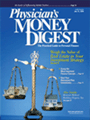Protect Your Home Amid Rising Interest Rates
For a majority of American families, their home is not onlytheir castle, it has become the equivalent of their stockportfolio, retirement account, and ATM machine. Familieswho don't own homes want a piece of that action, and manywho already own want a bigger home. Yet rising interest ratescould stifle the dreams of current homeowners and would-beowners. So how do you protect yourself?
To answer that question, financial planners first cautionthat any housing decision should always be made not just onthe basis of interest rates but in the context of your particularneeds and circumstances. Following is advice on some commonhousing concerns:
• Should I quit renting and buy? A fear of rising interestrates may push renters into buying soon, before "it's too late."But they need to consider several factors first. Can they trulyafford a home, or at least the home they want? Will comingup with the down payment (possibly by raiding their retirementfunds) or the monthly house payments jeopardize otherfinancial necessities? Will they have to pay exorbitant interestrates because of bad credit, when their priority should be fixingup their credit, not buying a home? Do they anticipate livingin the new home for just a short time? A short stay can becostly because of the buying and selling costs and because youmay be forced to sell into a high-interest-rate market that hasstalled or depressed housing prices.
• Should I sell my current home and buy another beforerates rise further? Homeowners who have been thinkingabout selling and moving are getting antsy, fearful that if theywait any longer they won't be able to sell their current homeand afford the home they desire. Like first-time homebuyers,they need to be careful not to jeopardize other financialneeds. A second risk is that they may pay too much for a homein an overheated marketplace, as panicked buyers outbid eachother in a rush to buy before rates climb further.
Some may be tempted to sell and rent until prices andinterest rates stabilize. Again, if you plan to live long term inwhat you buy, why wait? Don't let today's sound bites aboutinterest rates drive your long-term housing decisions.
• What kind of mortgage should I get? As mortgage ratesstart to climb, homebuyers will be increasingly tempted bymortgage alternatives that offer lower initial rates than fixed-ratemortgages.
One popular alternative is adjustable rate mortgages (ARMs).An ARM might carry a fixed rate for the first 5 years, for example,then adjust according to the new interest rates. If thoserates are up, you may be stuck with the higher ARM ratebecause you will no longer be able to turn to low-interest fixedrates. So if you roll the ARMs dice, be sure you can afford potentiallyhigher mortgage payments down the road.
Nervous buyers also may be enticed by the increasinglypopular interest-only mortgages, and may end up buyingmore home than they can truly afford.
• Should I avoid buying now because of the risk of thehousing bubble? Housing experts disagree about how muchdamage rising interest rates will inflict on housing prices. Also,the bursting of housing bubbles typically occurs locally orregionally, not nationwide, so any impact would depend onwhere you sell and buy.
Trying to guess what housing prices will do in the comingmonths and years is like trying to guess how stocks will perform.If you plan to buy a home that fits your needs for the long haul,many planners would advise you to buy it and don't worry abouta possible bubble. However, those who plan to live in a newhome only a short time might need to be more cautious.
• What about borrowing against the equity in my home?Should rates rise significantly, those who have home equityloans or have refinanced could face two potential problems.First, it may cost them more to finance their outstanding loan.Second, should housing prices slump, some families could endup owing more than the equity left in their home—a realproblem, for example, should they lose their job and have tomove. Slumping prices also could reduce the amount of eligibledeductible mortgage interest.
This article has been produced by the Financial Planning Association(www.fpanet.org), which is the membership organization for the financialplanning community.
